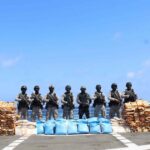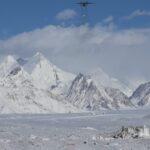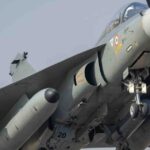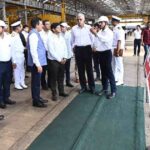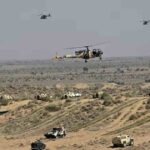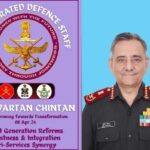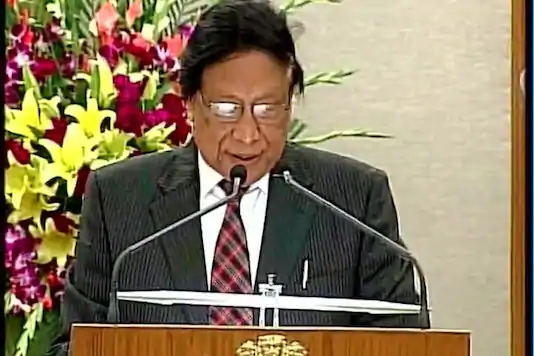
SOURCE: NEWS18
A famous quote by Mark Twain reads, ‘History never repeats itself, but it rhymes.’ But Th. Muivah, General Secretary of National Socialist Council of Nagaland (NSCN-IM ), is proving Twain wrong by repeating exactly what he did in 1966 when he killed the settlement of Indo-Naga issue right at the time it was about to happen.
When the peace loving leaders of the Naga National Council, led by General Secretary T. Sakhrie, parted with A.Z. Phizo, the then President, in December 1955, when the latter decided to shun the path of peaceful pursuit of Naga independence and launched a military campaign against India, they first attempted to win over the hardliners by forming NNC-Reformation.
Soon, Sakhrie was brutally assassinated by Phizo’s men. The other NNC-R leaders, committed to the best possible future for the Nagas, pursued their campaign for an honourable peaceful solution to the Naga political issue. After nearly five years of peaceful struggle, often risking their own lives from the hardliners, they achieved what could have been unimaginable today. They united the Nagas divided between Assam and NEFA. and eventually on December1, 1963 got the Nagaland, the 13th state of Indian Union with full autonomy over all the matters dear to the Naga people. Now the challenge before them was to bring the undergrounds to their fold.
Thanks to the initiatives of the Church, a Peace Mission comprising Jay Prakash Narayan, a Gandhian, Bimal Kumal Chaliha, the then Chief Minister, Assam, and Rev. Michael Scot, a British Pastor, was constituted in early 1964 to broker a ceasefire. With their hard work, the Peace Mission persuaded both the sides, GoI and the undergrounds, and the 1st ceasefire was declared in September 1964. Serious peace talks began. Gundevia, the then Foreign Secretary, and later Dharma Vir, the Cabinet Secretary, India, were the Govt. of India Interlocutor. The NNC was led by ScatoSwu and Khugato, the President and the Prime Minister of the underground government.
By early 1966, Indira Gandhi, the Prime Minister, took charge of the talks to ensure maximum political flexibility. By the first quarter of 1966, the two sides had ironed out all the differences. Indira Gandhi took bold decisions to ensure dignity and honour to the Naga people and their aspirations. The Naga negotiators, like astute statesmen, while agreeing for a settlement within the Indian Union, extracted maximum possible concessions from the Government of India. Palpable optimism prevailed in the air. A final settlement seemed imminent. Nagas were preparing for a grand celebration.
By a quirk of history, Th. Muivah, a newly graduated Tangkhul from Manipur, was inducted into the NNC in 1965 and soon made its General Secretary by Phizo, who was in London. Since Phizo was away from Nagaland and not aware of local undercurrents, he trusted Muivah to keep the Nagas united and follow his political directions.
Th. Muivah, abusing the trust of Phizo, mischievously exploited the inter-tribal differences among the Nagas of Nagaland. He instigated Mown Angami, the Chief of Naga Army against ScatoSwu, the President of the Federal Government of Nagaland, who was a Sema, alleging that any settlement with Government of India by the Sema leader would be at the cost of Angamis. Although Angamis were at the political forefront of the Naga national movement, it were the Semas who had carried on the military campaign since 1956 by providing sufficient number of fighters.
Muivah, to scuttle the imminent peace deal, created the Sema-Angami divide. He, as the General Secretary, NNC, issued a warning letter on April 20, 1966 to the Naga negotiators of dire consequences if they settled for anything less than full independence. Inter-tribal bloody feud was unleashed. ScatoSwu and others were forced to resign. Kaito, the Defence Kilonser, was assassinated in broad daylight in the Kohima town.
A golden opportunity for a peaceful settlement was lost. Nagas were disappointed, so were their well-wishers. One of the ardent well-wishers of the Nagas, J.H. Hutton, who had served as the Deputy Commissioner of the Naga Hill District for over a decade and was instrumental in keeping the Naga Hill District excluded from the reforms introduced by the Simon Commission felt so frustrated that he wrote a long letter to the Editor, the Assam Tribune, on July 18, 1966. A frustrated Hutton wrote: “It seems to me that by the formation of the State of Nagaland, protected as it is by the clauses in the Constitution of India, the Nagas have in fact got more than might have been expected or even desired – complete internal home rule, financed by the Indian Government; Indeed they have won their war, but to take advantage of their victory the undergrounds must be persuaded to hand over their arms and order in the hills must be restored.”
In 1966, Th Muivah betrayed the President and the Prime Minister of the underground government, later in 1980, he betrayed other leaders, including his godfather and mentor Phizo.
Having eliminated the Senior Sema Leadership by pitting them against the Anagmis, Muivah set his eyes on taking control of the Naga Army. He eliminated Major General Namlu Konyak on the night of January 10, 1976 at a Kachin Camp while returning from China. Major General Namlu Konyak was a Phizo loyalist and head of the Naga Army delegation that had gone to China in 1975 for training and weapons. Muivah used his loyal Tangkhul cadres to kill Namlu while he was sleeping in his tent.
He recruited a large number of Tangkhul youths in the Naga Army and tilted the balance of power in Naga Army in favour of Tangkhuls.
Hugely influenced by Maoist ideology of power through the barrel of the gun and socialism, he staged a coup within the NNC in the later part of 1979 and in early 1980 he formed his National Socialist Council of Nagaland and unleashed an un-ending fratricidal violence on the Nagas of Nagaland. He dubbed Phizo as the traitor wanting to grab the political power for the Angamis.
Ambitious as he has always been, in the absence of integration of the Manipur Naga areas with Nagaland he does not see his dreams of being the supreme leader of all the Nagas getting fulfilled. Hence, he is repeating his own history by trying to sabotage the solution at a time when the talks have concluded and every Naga is expecting the enduring honourable peace.

